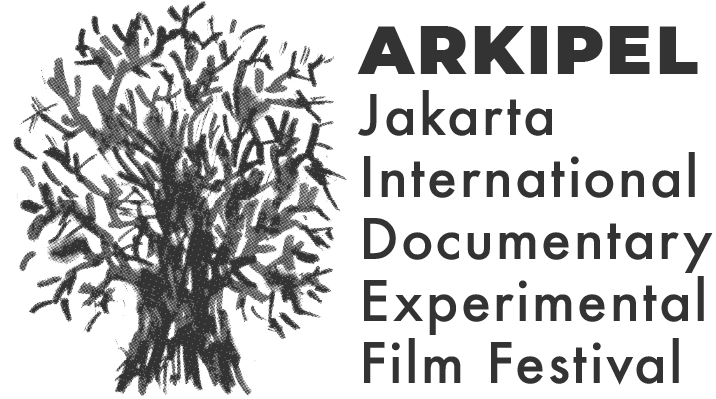penayangan khusus golden memories
Golden Memories: Sejarah Sinema Keluarga Indonesia
Dengan kemajuan teknologi, sekarang semua orang bisa merekam secara mudah menggunakan perangkat digital. Mulai dari merekam hal penting hingga tidak penting. Merekam peristiwa krusial hingga kehidupan sehari-hari yang membosankan. Praktik merekam secara ‘amatir’ ini sudah jauh dilakukan sejak tahun 1900-an di Indonesia menggunakan film seluloid. Akan tetapi produksi gambar pada saat itu hanya dapat dilakukan oleh segelintir orang yang memiliki akses terhadap peralatan produksi dan pengetahuan sinema. Sejarah mengenai sinema Indonesia juga cenderung berfokus pada filem-filem industri yang dibuat untuk tujuan komersil.
Sejak awal tahun 2016, Forum Lenteng melakukan riset Sejarah Sinema Kecil yang berusaha mengungkap filem amatir dan sinema keluarga. Riset ini berangkat dari beberapa asumsi. Seperti pada Desember 1926, kamera filem Cine-Kodak telah dipasarkan pada masyarakat umum di Indonesia sehingga kemungkinan ada pembuat filem di luar kelompok sutradara Indonesia. Selain itu, Misbach Yusa Biran pernah mengatakan bahwa filem pertama Indonesia masuk pada tahun 1900, yang kemudian direvisi oleh temuan dari koran bahwa filem pertama masuk tahun 1896. Sehingga tim riset mulai berpikir bahwa ada bagian-bagian lain dari sejarah sinema Indonesia yang belum atau jarang terjamah. Riset ini kemudian menghasilkan filem Golden Memories realisasi dari Afrian Purnama, Mahardika Yudha, dan Syaiful Anwar. Filem ini diputar di Kineforum pada tanggal 14 Agustus 2018 pukul 13.00 sebagai bagian dari pemutaran spesial ARKIPEL homoludens – 6th Jakarta International Documentary and Experimental Film Festival.

Pengantar sebelum penayangan Golden Memories di Kineforum
Golden Memories menampilkan usaha ketiga pembuat filem tersebut dalam menelusuri jejak-jejak sinema keluarga di Indonesia. Filem ini berfokus pada dua nama yaitu Kwee Zwan Liang dan Rusdy Attamimi. Kwee Zwan Liang adalah mantan kepala laboratorium pabrik gula di Jatipiring, Cirebon. Ia telah membuat filem sejak 1926 dan karya-karyanya diarsipkan di EYE Filmmuseum Amsterdam. Sedangkan Rusdy Attamimi adalah seorang mantan pilot dan sejak tahun 1960-an telah mendokumentasikan peristiwa-peristiwa yang terjadi disekitarnya menggunakan kamera 8mm. Keduanya merepresentasikan dua periode dalam sejarah Indonesia, yaitu sebelum dan sesudah kemerdekaan.
Afrian Purnama mengatakan bahwa filem ini sengaja direkam dengan estetika filem keluarga. Penonton disuguhkan montase dan rekaman wawancara dengan berbagai narasumber yang melompat, mulai dari Jakarta ke Amsterdam hingga Den Haag ke Jatipiring. Filem ini seakan-akan tidak berusaha membangun narasi mengenai situasi yang sedang dieksplorasi. Interaksi yang terjalin antara ketiga pembuat filem dengan Rusdy Attamimi dan keluarga Kwee Zwan Liang adalah interaksi yang spontan, mentah, dan tanpa naskah. Interaksi tersebut membuat beberapa penonton tanpa sadar tersenyum dan tertawa kecil.



Afrian Purnama, salah satu sutradara di sesi diskusi
Sinema keluarga bersifat privat sehingga melihatnya terasa seperti sedang mengintip kehidupan orang lain. Walaupun ternyata dalam filem terlihat bahwa filem keluarga bahkan diperjualbelikan misalnya di pasar barang bekas. Ini menimbulkan pertanyaan bagi saya pribadi – atau mungkin penonton lainnya – mengenai apakah keintiman dari sinema keluarga akan hilang ketika yang melihatnya tidak memiliki relasi emosional dengan subjek dalam filem. Di era digital sekarang, fenomena yang sama sepertinya dapat kita jumpai di media sosial seperti instagram. Bedanya adalah sang pengguna secara sadar memang merekam dengan tujuan untuk membagi momen-momen intim dengan pengikut-pengikutnya.
Volta, dari Komunitas Gubuak Kopi, mengatakan bahwa pembacaan arsip yang digarap dalam filem ini sangat mengulik detail dan hal-hal yang tidak terpikirkan. Ia memuji kemampuan pembuat filem dalam mencari dan mendapatkan informasi. Sejarah mengenai sinema keluarga juga dianggap sangat penting untuk diketahui oleh pembuat filem lainnya yang seringkali terlalu terpaku terhadap filem komersil. Selama hampir 2 jam, penonton tidak hanya diberikan edukasi baru mengenai sejarah sinema Indonesia tetapi juga memberikan perasaan hangat akan sinema keluarga. Jika mengutip dari filem ini; “karena sinema keluarga menampilkan sesuatu yang intim, jujur, dan sederhana”.
golden memories special screening
Golden Memories: History of Indonesian Home Cinema
Now everyone can easily record using digital devices, thanks to the advancement of technology. Starting from recording important things to the unimportant ones, recording momentous events up to merely mundane daily life. This practice of ‘amateur’ recording has been performed since the 1900’s in Indonesia using celluloid film. However, image production at that time could only be done by several people who had access to production equipment and cinematic knowledge. The history of Indonesian cinema also tends to focus on industrial films that are made for commercial purposes.
Since the beginning of 2016, Forum Lenteng has researched the Petite Histoire of Cinema which seeks to uncover amateur films and home cinema. This research departs from several assumptions. As in December 1926, the Cine-Kodak film camera has been marketed to the general public in Indonesia so that there is the possibility of filmmakers outside the Indonesian director group. Also, Misbach Yusa Biran once said that Indonesia’s first film entered in 1900, which was later revised by the findings of the newspaper stating that the first film came in 1896. So the research team began to think that there were other parts of the history of Indonesian cinema that had not or rarely been touched. Then, this research produced Golden Memories film, realisation from Afrian Purnama, Mahardika Yudha, and Syaiful Anwar. This film was screened at Kineforum on August 14, 2018, at 1:00 p.m. as part of a Special Screening program of ARKIPEL homoludens – 6th Jakarta International Documentary and Experimental Film Festival.



Introduction before screening the Golden Memories film at Kineforum
Golden Memories presents the attempt of three filmmakers in tracing the traces of home cinema in Indonesia. This film focuses on two names, Kwee Zwan Liang and Rusdy Attamimi. Kwee Zwan Liang is the former head of the sugar factory laboratory in Jatipiring, Cirebon. He has been making films since 1926, and his works are archived on the EYE Filmmuseum Amsterdam. While Rusdy Attamimi is a former pilot and since the 1960s has documented the events that occurred around him using an 8mm camera. Both represent two periods in Indonesian history, namely before and after independence.
Afrian Purnama said that this film was intentionally recorded in the aesthetics of home cinema. The film offers a montage and recording of interviews jumping from place to places, starting from Jakarta to Amsterdam to The Hague to Jatipiring. It’s as if the film is not trying to build a narrative about the situation being explored. The interaction between these three filmmakers and Rusdy Attamimi as well as Kwee Zwan Liang’s family is a spontaneous, raw, and unscripted interaction. This interaction made some viewers unconsciously smile and chuckle.



Afrian Purnama, one of the directors in Q&A Session
The private nature of home cinema makes the experience of watching feels like voyeuring at someone else’s life. Although eventually in the film it appears that home cinema is also a commodity for trade, in a flea market for instance. This situation raises questions for me personally – or perhaps other viewers – about whether intimacy from family cinema will disappear when those who see it has no emotional connection with the subject in the film. In today’s digital era, the same phenomenon can be seen on social media like Instagram. The difference is that the user is consciously recording with the aim to share intimate moments with the followers.
Volta, from Gubuak Kopi community, said that the reading of archives performed in this film went into details and unthinkable things. He praised the ability of filmmakers to find and obtain information. The history of family cinema is also considered very important to be known by other filmmakers who are often too fixated on commercial films. For almost 2 hours, the audience was given not only new education about the history of Indonesian cinema but also a warm feeling of family cinema. Quoting from this film; “because the home cinema displays intimate, honest and simple things”.

